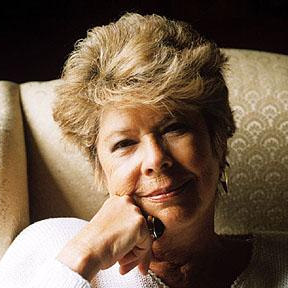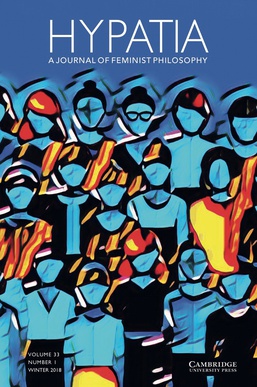Women's studies is an academic field that draws on feminist and interdisciplinary methods to place women's lives and experiences at the center of study, while examining social and cultural constructs of gender; systems of privilege and oppression; and the relationships between power and gender as they intersect with other identities and social locations such as race, sexual orientation, socio-economic class, and disability.

Ms. is an American feminist magazine co-founded in 1971 by journalist and social/political activist Gloria Steinem. It was the first national American feminist magazine. The original editors were Letty Cottin Pogrebin, Mary Thom, Patricia Carbine, Joanne Edgar, Nina Finkelstein, Mary Peacock, Margaret Sloan-Hunter, and Gloria Steinem. Beginning as a one-off insert in New York magazine in 1971, the first stand-alone issue of Ms. appeared in January 1972, with funding from New York editor Clay Felker. It was intended to appeal to a wide audience and featured articles about a variety of issues related to women and feminism. From July 1972 until 1987, it was published on a monthly basis. It now publishes quarterly.

Marilyn French was an American radical feminist author, most widely known for her second book and first novel, the 1977 work The Women's Room.

Florence Rosenfeld Howe was an American author, publisher, literary scholar, and historian who is considered to have been a leader of the contemporary feminist movement.

Meena Alexander was an Indian American poet, scholar, and writer. Born in Allahabad, India, and raised in India and Sudan, Alexander later lived and worked in New York City, where she was a Distinguished Professor of English at Hunter College and the CUNY Graduate Center.

Hypatia: A Journal of Feminist Philosophy is a peer-reviewed academic journal published quarterly by Cambridge University Press. As of January 2019, the journal is led by co-editors Bonnie J. Mann, Erin McKenna, Camisha Russell, and Rocío Zambrana. Book reviews are published by Hypatia Reviews Online (HRO). HRO is edited by Erin McKenna and Joan Woolfrey. The journal is owned by a non-profit corporation, Hypatia, Inc. The idea for the journal arose out of meetings of the Society for Women in Philosophy (SWIP) in the 1970s. Philosopher and legal scholar Azizah Y. al-Hibri became the founding editor in 1982, when it was published as a "piggy back" issue of the Women's Studies International Forum. In 1984 the Board accepted a proposal by Margaret Simons to launch Hypatia as an autonomous journal, with Simons, who was guest editor of the third (1985) issue of Hypatia at WSIF, as editor. The editorial office at Southern Illinois University Edwardsville handled production as well until Simons, who stepped down as editor in 1990, negotiated a contract with Indiana University Press to publish the journal, facilitating the move to a new editor.

The Feminist Press is an American independent nonprofit literary publisher of feminist literature that promotes freedom of expression and social justice. It publishes writing by people who share an activist spirit and a belief in choice and equality. Founded in 1970 to challenge sexual stereotypes in books, schools and libraries, the press began by rescuing “lost” works by writers such as Zora Neale Hurston, Charlotte Perkins Gilman and Rebecca Harding Davis, and established its publishing program with books by American writers of diverse racial and class backgrounds. Since then it has also been bringing works from around the world to North American readers. The Feminist Press is the longest surviving women's publishing house in the world. The press operates out of the Graduate Center at the City University of New York (CUNY).
Cindi Katz, a geographer, is Professor in Environmental Psychology, Earth and Environmental Sciences, American Studies, and Women's Studies at the CUNY Graduate Center. Her work concerns social reproduction and the production of space, place and nature; children and the environment; the consequences of global economic restructuring for everyday life; the privatization of the public environment, the intertwining of memory and history in the geographical imagination, and the intertwined spatialities of homeland and home-based security. She is known for her work on social reproduction and everyday life, research on children's geographies, her intervention on "minor theory", and the notion of counter-topography, which is a means of recognizing the historical and geographical specificities of particular places while inferring their analytic connections to specific material social practices.

HERESIES: A Feminist Publication on Art and Politics was a feminist journal that was produced from 1977 to 1993 by the New York–based Heresies Collective.

The National Women's Studies Association (NWSA) is an organization founded in 1977, made up of scholars and practitioners in the field of women's studies also known as women's and gender studies, feminist studies, and related names in the 21st century.

TSQ: Transgender Studies Quarterly is a quarterly peer-reviewed academic journal covering transgender studies, with an emphasis on cultural studies and the humanities. Established in 2014 and published by Duke University Press, it is the first non-medical journal about transgender studies.

Alison Piepmeier was an American scholar and feminist, known for her book Girl Zines: Making Media, Doing Feminism. She was director of Women's and Gender Studies and associate professor of English at the College of Charleston.
Victoria Pitts-Taylor is Professor of Feminist, Gender, and Sexuality Studies at Wesleyan University, Connecticut, and also Professor of Science in Society and Sociology there. She was formerly a professor of sociology at Queens College and the CUNY Graduate Center, New York, and visiting fellow at the Centre for the Study of Social Difference, Columbia University, New York. Pitts-Taylor is also former co-editor of the journal Women's Studies Quarterly. She has won the Robert K. Merton Book Award from the section on Science, Knowledge and Technology of the American Sociological Association, and the Feminist Philosophy of Science Prize from the Women's Caucus of the Philosophy of Science Association.
Dána-Ain Davis is a professor of urban studies at Queens College, City University of New York (CUNY) and the Director of the Center for the Study of Women and Society.

The Dragon and the Doctor is a 1971 picture book written and illustrated by Barbara Danish. The story concerns a dragon with a sore tail who goes to see a doctor. The Dragon and the Doctor was the first book published by the Feminist Press. The publisher's founder, Florence Howe, had not initially planned to produce children's literature but a notification by a third party in a feminist newsletter that the press would be publishing children's books drew significant interest. Thus convinced, Howe enlisted Danish to adapt the Chinese picture book I Want to Be a Doctor into a new story with a female doctor protagonist.
Elizabeth Weed is an American feminist scholar, editor and university administrator. She is the cofounder and, from 2000 to 2010, director of the Pembroke Center for Teaching and Research on Women, as well as the feminist studies journal differences, cofounded in 1989 with Naomi Schor.
The Feminist Writers' Guild was an American feminist organization from Berkeley, California, founded by Mary Mackey, Adrienne Rich, Susan Griffin, Charlene Spretnak, and Valerie Miner. Established in 1978, the group was primarily known for their national newsletter. They aimed to augment the feminist movement of the late 1970s by creating a strong network for women writers to communicate and support each other. They promoted works by women regardless of their age, class, race and sexual preference. The FWG published three times a year through a subscription service and accommodated their prices for unemployed or low-income women.
Barbara Hillyer or Hillyer-Davis was the founding director of the Women's Studies courses at the University of Oklahoma. Her 1993 book, Feminism and Disability was the 1994 Emily Toth Award winner for the best feminist publication of the year and was also named as Outstanding Academic Book by the Association of College and Research Libraries's Choice Magazine. Her work explored the response of the disability and feminist rights movements to aging, chronic illness, disability, and mental health.

Patricia Andrea Gozemba is an American academic and activist. She grew up in Massachusetts and was involved in the political movements of the 1960s and 1970s, including the Civil Rights Movement, the Women's Liberation Movement and protests against the Vietnam War.











